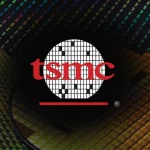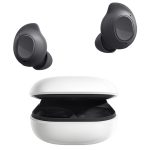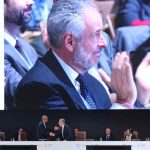“I did but see her passing by, yet I shall love her till I die” – Sir Robert Menzies
Over the record-breaking 70 years of Queen Elizabeth II’s reign, which included 16 trips to Australia, there remain thousands of stories and memories of where people were when she drove into town.
From her first visit in 1954, when she stepped off the royal barge at Farm Cove on Sydney Harbour (where Captain Arthur Phillip raised the British flag 165 years before her), to her last visit in 2011 wearing a pink coat on a Melbourne tram, ordinary Australians, families, kids, dignitaries, defence force personnel and politicians all have their stories.
For former Lieutenant Commander Charles Falkiner, 90, in charge of the 130 members of the royal guard for her 1963 visit to Melbourne, it was the highlight of his life.
Mr Falkiner, who spent 23 years in the Royal Australian Navy, recalled organising the naval dry cleaners to collect all the white uniforms for his troops and then making the soldiers stand up while on buses so they wouldn’t crease their pants before they stood to attention that warm February day.
“I was in charge of the guard, so I gave all the commands. When the Queen arrived, apparently going down the gangway of the Britannia she got her glove dirty, and the Queen’s lady-in-waiting carried six sets of gloves in her handbag.
“The Queen was a bit upset, apparently. We learnt this later. She was really boot-faced [stern] when she came up the landing out of the launch.
“I called the guard to attention. We sloped arms and presented arms, the royal salute. We played the National Anthem … I marched out, met the Queen, saluted her and said: ‘Your guard, ready for inspection, Your Majesty’.”
The Queen replied: “Thank you … the guard looks very smart. The uniforms are wonderful.”
“That particular day,” Mr Falkiner said, “stands out as one of the highlights of my naval career.”
So too, for a Rat of Tobruk, Alan Treloar, who cried when he saw the Queen at the Melbourne Cricket Ground’s ex-service rally during that same tour.
“I just couldn’t help it,” Mr Treloar said afterwards, his words captured for posterity in the National Archives of Australia’s records (NAA).
“The sight of our young Queen makes you realise that everything you’ve ever fought for is worthwhile.”
As another Aussie told The Telegraph mid-way through the first tour of his country by a reigning monarch, ““Let’s face it, we have gone Queen crazy.”
Queen Elizabeth II and Prince Philip arrive at Parliament House in Hobart, Tasmania, during their Commonwealth Tour of Australia in 1954. Photo: Getty
According to the official royal website, her relationship with Australia was “unique”.
A national poll taken at the time of the Queen’s tour in 1954 – the first reigning monarch to visit our shores – showed 75 per cent of Australians saw her at least once during the tour.
Passion and devotion for the British monarchy was ripe back then, as families still battle weary from World War II remembered what it was like to fight for freedom, records the NAA.
‘Loyalty and devotion’
The Queen’s first tour, when she made around 100 speeches, was extensive. She visited every capital city, except Darwin, 70 country towns and travelled 3200km by road in 207 separate car trips.
Fierce monarchist Sir Robert Menzies cemented forever an enduring love affair in a first-person piece in The Sydney Morning Herald after she left that year: “It is a basic truth that for our Queen we have within us, sometimes unrealised until the moment of expression, the most profound and passionate feelings of loyalty and devotion.
“It does not require much imagination to realise that when eight million people spontaneously pour out this feeling they are engaging in a great act of common allegiance and common joy which brings them closer together.
“The common devotion to the Throne is a part of the very cement of the whole social structure,” he wrote.
And the Queen, in her formal way, expressed her love of Australia while addressing federal parliament.
“Ever since I first came here in 1954, I have watched Australia grow and develop at an extraordinary rate. This country has made dramatic progress economically, in social, scientific and industrial endeavours and, above all, in self-confidence,” she said.
“In an unstable world, Australians consider themselves fortunate, however they continue to make a significant contribution to world peace-keeping. This does not come without a price, and we are all conscious of the sacrifices made by the Australian armed services in international operations.”
Ordinary Australians recall the Queen’s tours
1954: Geoff Cromack and a group of friends found a spot at Farm Cove to wait the for Queen’s arrival: “I know we are a bit early, but we are determined to not miss seeing the Queen when she first sets foot on Australia … We are quite well organised and the time flies. I play the guitar and Les accompanies me on the mouth organ. When we get fed up with that we turn on the gramophone.”
1963: The Sydney Morning Herald archives record the Queen’s February visit to Melbourne’s Flemington Racecourse, where a three-year-old boy yelled out: “Hi Queen”, while an elderly man took off his hat, waved it, and said: “God bless you.”
Prince Charles, the Queen and Princess Anne at the Royal Easter Show. Photo: AAP
1970: The royal tour became less formal. The Queen and the Duke of Edinburgh, accompanied by Prince Charles and Princess Anne, arrived to mark the bi-centenary of Captain James Cook sailing up the east coast of Australia in 1770. The Queen went to the Royal Easter Show where she tightly carried three home-grown zinnias given to her by a young boy. Prince Charles and Princess Anne played polo in Centennial Park under a rainy sky, and archival photos show the Queen smiling at every formal and informal engagement. A SMH headline read: “Sydney sees a family laughing in the showers.”
1973: One million people turned out to watch their “radiant Queen” officially open the Sydney Opera House. The Sunday sister paper of the SMH, the Sun-Herald, reported tens of thousands gathered as 2000 yachts and warships of four navies sounded their horns and sirens as she told 15,000 spectators: “Controversy of the most extreme kind attended the building of the pyramids, yet they stand today, 4000 years later, acknowledged as one of the wonders of the world. I believe this will be so for the Sydney Opera House … [it] will have something the pyramids never had – it will have life.”
1974: The royals returned to open Parliament House in Canberra. But the Queen was forced to return to Britain after a snap general election was called, and left Prince Philip to finish the tour. It was the only time the Queen abandoned an overseas trip.
1977: The Queen marked her Silver Jubilee with a tour of every Australian state and territory, and shook hands with Sir Robert Menzies at the MCG. The Nine network reported, “things didn’t go to plan when she was confronted with anti-royalist demonstrations in Adelaide. But it wasn’t all heckles, with Australian cricketer Dennis Lillee requesting an autograph when the Queen visited the MCG. She declined but later mailed him one.” She continued to make front page news every day of her visit despite the Republican movement, reading the room with only a 13-minute speech to parliament. The SMH archive reports people still loved her, and she received a $30,000 racehorse for her Silver Jubilee. She had to name it, and said: “With a sire called Without Fear and trying to find something with Australian connotations there should be plenty of scope.”
1980: The Queen, aged 54, opened the High Court of Australia building in Canberra. She met entertainers, including Paul Hogan and Olivia Newton-John, after they performed in a Royal Charity Concert at the Sydney Opera House. A group of girl guides smiled excitedly as she said hello outside the Anzac Memorial Chapel at Duntroon in Canberra.
1981: The Queen travelled to Melbourne (among other cities) for the biennial Commonwealth Heads of Government Meeting. The papers reported the Queen’s official convoy was diverted after a bomb scare in a church while the Queen was attending a service across the road. It wasn’t all bad. She went to Caulfield Racecourse and presented the Queen Elizabeth Cup to jockey Roy Higgins, who rode Manikato to victory, and the owner Mai Seccull.
Australians have long greeted the Queen with flowers and flags. Photo: Getty
1982: The Queen is not getting the headlines she once did, but thousands still wait to see the royals. The Queen opened the Brisbane Commonwealth Games on September 3. She and Prince Philip also travelled to NSW and Canberra to open the National Gallery of Australia.
1986: The Queen signed the Australia Act 1986 in Canberra on February 7. This made Australian law independent of British parliament and courts. The SMH reported Sydney woman Margaret Cleghorn, 71, stood for three hours to see the Queen, and told the paper: “I’d say we’ve got those Republicans and egg-throwers on the run” as thousands of children lined up and waved plastic flags.
1988: It is Australia’s Bicentenary and the Queen toured almost everywhere, skipping only Victoria and the Northern Territory. She opened Brisbane’s World Expo 88 and the Stockman’s Hall of Fame in Longreach. The Queen also opened Canberra’s new Parliament House. The late former prime minister Bob Hawke stole the show at the races when he cheered on Beau Zam to win. When asked by The Age newspaper whether she had backed the winner, she stopped, turned, and replied with a polite, regal shake of the head.
1992: It was labelled the Lizard of Oz tour by the British press after then prime minister Paul Keating put his arm around her. The Queen arrived to commemorate the 150th anniversary of the founding of Sydney, and received a warm welcome. Jacqui Lonard told the SMH she was waiting to see Her Majesty because “you don’t get too many nice things happening these days and she’s one of the nice things”.
2000: The Queen’s 13th tour was delayed following Australia’s 1999 referendum on becoming a republic. The ABC reported there were complaints in the British and Australian press that the Federal Government deliberately sanitised the Queen’s program. Her visit was marred after an armed man posed as a royal security officer ahead of her arrival at Darling Harbour. He was arrested and the Queen was unharmed. On a lighter note, while visiting the NSW outback town of Bourke, a child asked her why she wasn’t wearing her crown. With a smile, she replied: “Because I can’t get it out of the Tower of London.”
2006: The Queen’s five-day tour began in Canberra where she met dignitaries and well-wishers. One spectator told the ABC: “It was lovely. My grandma got to talk to her … just to say welcome back to Australia.” Another said: “It was a great honour to be that close to the Queen … within a metre is pretty darn good – of someone who appears on our currency.” The Queen opened Melbourne’s Commonwealth Games on March 15.
2011: The Queen was 85 when she made her final tour. Then prime minister Julia Gillard bowed, rather than curtsied; in Brisbane she met victims of the previous summer’s disastrous floods. In Melbourne, the Queen opened the new Royal Children’s Hospital and rode in a custom-designed royal tram. She finished her tour at a Commonwealth Heads of Government Meeting in Perth, before being farewelled by a crowd of nearly 100,000 people.
The post The Queen’s love affair with Australia – 16 visits and the lifelong impressions she left appeared first on The New Daily.







